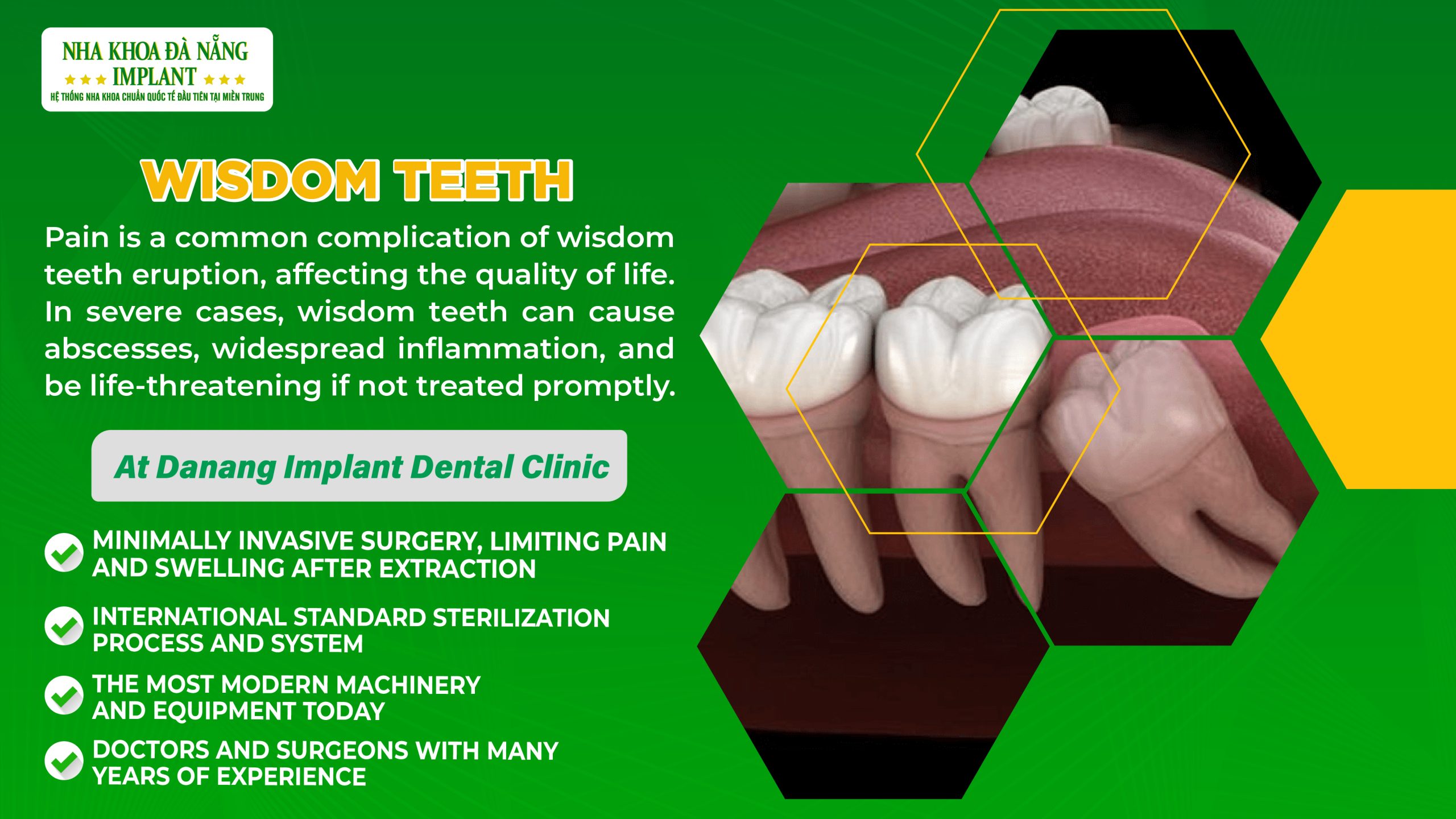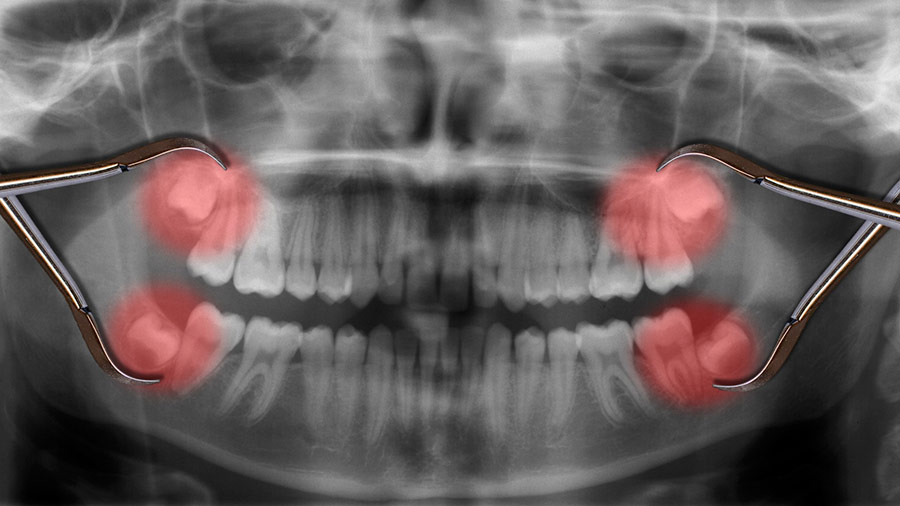Wisdom teeth, or the 8th teeth, grow at the back of your gums and are the last teeth to come through. These teeth do not appear in children who are in the age of teething or teeth replacement. They usually appear in adults above 18.
Wisdom teeth come in last when there is not enough space in the arch for them to grow normally. Therefore, wisdom teeth often grow out of place and crowd other teeth, leading to swelling and pain.
There are many cases where wisdom teeth grow in sideways and crooked without timely intervention, causing swelling and food accumulation, then leading to bad breath or gingivitis.

Extraction of teeth 8 (wisdom teeth)
In fact, teeth 8 are called wisdom teeth because they usually come in when people are adults, they can perceive everything themselves.
Many cases of wisdom teeth do not grow smoothly, causing people to experience a lot of pain and inconvenience. Therefore, wisdom teeth have almost no effect on aesthetics or chewing function.
Wisdom teeth are thought to grow with their special meaning, so it should not be removed. Humans have 32 teeth, including 4 wisdom teeth in both the upper and lower jaw.
Not only does it have no special meaning, but wisdom teeth also cause a series of dangerous complications. Growing wisdom teeth always causes more pain and discomfort than the eruption of other teeth.
Wisdom teeth grow in crooked or sideways, causing swelling and pain in the mouth, so patient cannot perform chewing function.
If the inflammation caused by wisdom teeth lasts for a long time without timely examination or intervention, it will destroy the bone around these teeth. In addition, if the wisdom teeth grow out of place, it will push the remaining teeth.

wisdom teeth often grow out of place and crowd other teeth, leading to swelling and pain
Wisdom teeth often grow in unfavorable position or deeply in the jaw making it difficult to clean, creating a favorable environment for bacteria to grow and increasing the risk of gingivitis and tooth decay; therefore, they need extracting.
There have been many cases of wisdom teeth causing the infection and affect surrounding teeth and gums.
When they grow straight at the right position without opposite teeth match, causing opposite jaw extension and creating “stairs” among teeth, then creating food cramming and gum sores.
When they grow straight at the right position with deformed shape, causing food cramming with adjacent teeth, then lead to tooth decay and periodontitis in future.
It is possible to preserve wisdom teeth in the following cases:
Patients with chronic diseases such as cardiovascular disease, blood clotting disorders, diabetes…
Wisdom teeth often grow close to nerves such as the maxillary, mandibular and ophthalmic nerves… These risk factors will be assessed based on X-ray films. Therefore, there will be numbness at the tip of the tongue, cheeks, or lips after wisdom tooth extraction. This is the effect of the nerve at a mild level. In fact, wisdom tooth extraction does not affect the nerves; the symptoms will disappear after a few days.
